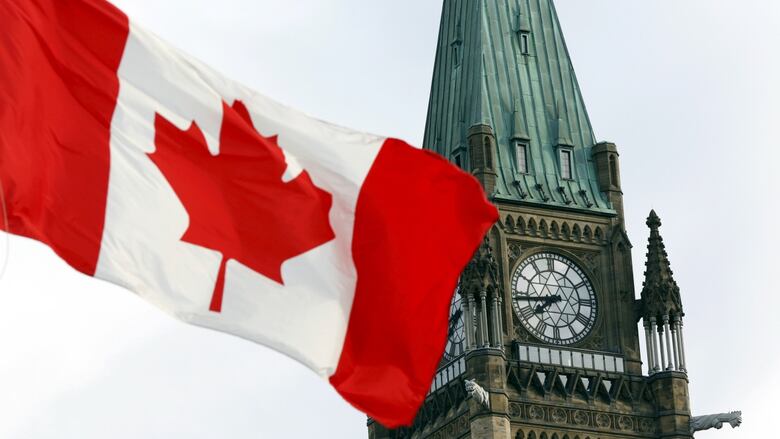War on ISIS, trade, the U.S. and refugees: spotlight moves to foreign affairs

Foreign affairs have played a big role during the election campaign, from the Conservatives' finger-pointing to instability overseas as a crucial factor in Canada's slumping economy to the refugee crisis in Europe, the war against ISIS and a major international trade deal still being negotiated.
Ahead of Monday's debate on foreign policy, The House sat down with two experts who know a lot about Canada's role and place in the world — Roland Paris, research chair in international security and governance at the University of Ottawa and founding director of the Centre for International Policy Studies, and Bessma Momani, a senior fellow at the Centre for International Governance and Innovation and a professor of political science at the Balsillie School of International Affairs.
How will Canada's role in fighting ISIS continue to evolve?
BM: We have soft skills we can bring to the table. We can use the great expertise of our military to professionalize the Iraqi army — not just give them guns and our technical skills, but also how to create a professional army in a multicultural society.
RP: I think a lot of our debate about Syria and Iraq is focused on Canada's military contribution to this mission. There are lots of ways in which Canada could re-engage with other efforts, and that doesn't preclude being deeply involved in the coalition effort.
BM: We have a great [peacekeeping] reputation but we're really riding on the coattails of inertia here. We've shunned values for the past 10 years, which is a shame because it's part of our success story.
What do we know about how the Liberals and NDP see Canada's place in the world?
RP: I expect we're going to find out a lot more on Monday night. Both opposition parties have indicated they'd like Canada to play, in their terms, a more constructive role in international affairs. The Liberals have talked about improving relations with the United States, which is crucial. Both parties have said they'd take a more serious approach to climate change and reengage with institutions like the United Nations.
We have tons of information on the Conservatives' foreign policies. For them, the question is less 'what is their vision of Canada in the world?', because we're likely to get more of the same. It's more 'what has the record been for ten years?', and that's the question I think we need to be asking ourselves — and that record, I don't think, is particularly positive.
What should Canadians be talking about when we discuss foreign policy?
RP: A lot of the debate about foreign policy in this country cycles around a performance of whether Canada is tough or not tough, or speaking to the right guys or not speaking to the right guys. Meanwhile, in the background our military spending is under one percent of GDP, which is less than half of what the NATO target is and our development funding has been pared back.
I think [in the foreign policy debate] we're likely to hear about the kind of role Canada can play in the world and whether we're advancing our interests. Canada has played a modest but useful role in the past. We're facing an unprecedented global refugee crisis right now — Canada should be a champion of rallying international action to strengthen the structures we have in place.
On the growing refugee crisis, we spoke with Jennifer Bond from Geneva, a University of Ottawa law professor who has served with the UNHCR in Syria.
You've been in Belgrade the last few days. What is the mood on the ground?
JB: There's a real sense of urgency here that we aren't necessarily connecting with in Canada, and that is the sense that winter is rapidly approaching. Not only is it a matter of borders closing and transit routes changing, and people who have already experienced tremendous hardship and trauma, but also the sense that time is of the essence because it's about to get brutally cold.
What has been the international view on Canada's response to the crisis?
JB: In the face of unprecedented spontaneous arrivals in places like Europe, it's absolutely critical that countries like Canada take a leadership role on resettlement efforts, and people quite frankly are wondering when and where we might expect to see the levels of engagement [from Canada] that are required.
Why do you say the operative number for Canada in this crisis is "zero"?
JB: We've heard a lot of numbers, particularly throughout this federal election campaign. I think the key number that needs to be highlighted, in terms of Canada's current commitment, is zero — because that's the number of additional spaces [for refugees coming to Canada] we've added in response to the crisis.
That is a major, major failure to respond, and that's what is prompting other international actors to wonder why we're not yet at the table.
What do you think about the Conservatives' announcement this week to resettle 10,000 Syrian refugees by September 2016?
JB: There were some good things in the announcement last week. The first thing was talking about the removal of the requirement of individual refugee status determination.
The second good move is the commitment to investing in processing and coordination. But the reality is, Canada has been out of step with the reality and urgency of this situation.The major gaps we're still not seeing is the expansion of the [refugee resettlement] program. We need to see new spaces, new commitments. We still see nothing resembling an emergency response.
When I talk about this with other people engaged in this area, it's laughable — it's not even having the same conversation. They're talking about what they're doing in the next days and weeks, and Canada's talking about the next coming months and years.
